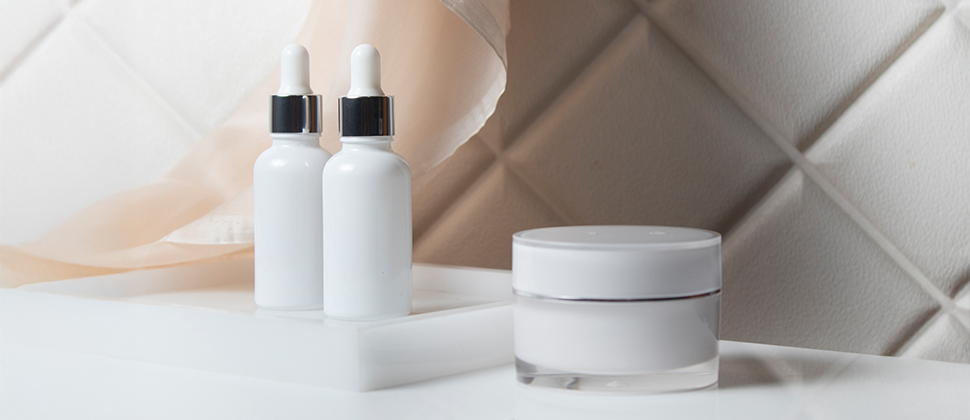Cecilia Wong, 5th & Glow — 30th July 2025
The 3 AM Wake-Up Call:
Why Your Sleep Changes After 40
(And What to Do About It)

It's 3:17 AM, and you're wide awake. Again. You fell asleep easily enough around 10 PM, but now you're staring at the ceiling, mind racing, wondering why sleep has become such an elusive friend. If this scenario sounds familiar, you're not alone. Millions of women over 40 experience dramatic changes in their sleep patterns, and it's not just "getting older" - there are specific biological reasons why your sleep changes after 40, and more importantly, there are proven strategies to reclaim your restful nights.The frustrating truth is that just when life gets more demanding - with career pressures, family responsibilities, and the stress of midlife transitions - your body's ability to get restorative sleep begins to change. But understanding why this happens is the first step toward getting your sleep back on track.
The Sleep Architecture Revolution

Your sleep doesn't just become lighter after 40 - the entire structure of your sleep changes. Sleep researchers call this your "sleep architecture," and it undergoes significant renovations during your 40s and beyond.
The Hormonal Sleep Saboteurs

The primary culprits behind these sleep changes are hormonal fluctuations that begin during perimenopause and continue through menopause and beyond.
Estrogen: The Sleep Protector
Estrogen is one of your sleep's best friends, and its decline after 40 creates a cascade of sleep problems. Estrogen helps regulate your body temperature, supports the production of sleep-promoting neurotransmitters, and maintains the health of tissues in your upper airway.
Progesterone: Nature's Sedative
Progesterone has natural sedative properties and helps promote deep, restful sleep. It enhances the activity of GABA, a neurotransmitter that calms the nervous system and promotes relaxation.
Cortisol: The Sleep Destroyer
Cortisol should naturally decline in the evening to prepare your body for sleep. However, chronic stress, poor diet, and hormonal changes can disrupt this natural rhythm.
The Hidden Sleep Disruptors

The primary culprits behind these sleep changes are hormonal fluctuations that begin during perimenopause and continue through menopause and beyond.
Blood Sugar Rollercoaster
Insulin sensitivity naturally decreases with age, and many women develop blood sugar imbalances that directly impact sleep. When your blood sugar drops during the night, your body releases cortisol and adrenaline to bring it back up, waking you up.
- The 3 AM Wake-Up:
If you consistently wake up between 2-4 AM, blood sugar fluctuations could be the culprit. - Carb Cravings:
Poor sleep quality can also create blood sugar imbalances during the day, leading to cravings for refined carbohydrates and sugar, creating a vicious cycle.
Magnesium Deficiency
Magnesium is crucial for sleep quality, helping to relax muscles and calm the nervous system. Deficiency becomes increasingly common after 40.
- Muscle Tension:
Magnesium deficiency can cause muscle tension and restless legs. - Nervous System Hyperactivity:
Without adequate magnesium, your nervous system remains in a state of hyperactivity. - Melatonin Production:
Magnesium is required for the conversion of serotonin to melatonin.
Thyroid Dysfunction
Thyroid problems become more common after 40, and both hyperthyroidism (overactive) and hypothyroidism (underactive) can significantly impact sleep quality.
The Sleep-Health Connection

Poor sleep after 40 isn't just about feeling tired; it has far-reaching effects on your health and appearance.
Reclaiming Your Sleep:
Evidence-Based Solutions

The good news is that you can improve your sleep with proven strategies.
Optimize Your Sleep Environment
Master Your Sleep Timing
Address Hormonal Imbalances
Stabilize Blood Sugar
Support Your Nervous System
Creating Your Personal Sleep Recovery Plan
Improving sleep after 40 requires a personalized approach. Start by identifying your primary sleep disruptors. Are you having trouble falling asleep, staying asleep, or both? Implement one or two new strategies at a time and give them at least 2-3 weeks to show results.
Your Sleep is Worth Fighting For
Quality sleep isn't a luxury—it's a necessity for your health, happiness, and vitality. The sleep changes you're experiencing are real, but they don't have to be permanent. With the right strategies, you can reclaim those restful nights and wake up feeling refreshed and energized. Your future self will thank you.








